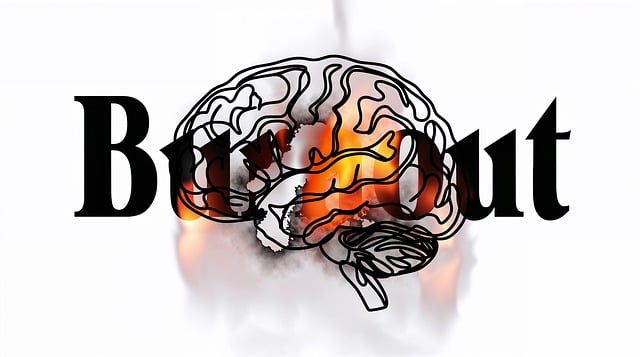Teaching emotion regulation to young children is crucial for developing effective coping mechanisms, especially those dealing with post-traumatic stress disorder (PTSD). Therapists use tailored interventions, including positive thinking and communication strategies, to help kids manage intense feelings. Techniques like deep breathing, mindfulness, and cognitive restructuring empower them to regulate emotions independently. Implementing these strategies at home, as emphasized in PTSD therapy for young children, supports their mental health through safe spaces, positive thinking, and structured routines.
Emotion regulation is a vital skill for young children to navigate their internal experiences and external interactions. This article explores effective strategies to teach kids how to manage their emotions, focusing on therapy techniques and their application in addressing Post-Traumatic Stress Disorder (PTSD). We delve into understanding emotional development in childhood, the role of therapy in teaching regulation skills, practical methods for PTSD management, and tips for implementing these strategies at home.
- Understanding Emotion Regulation for Young Children
- The Role of Therapy in Teaching Emotion Regulation Skills
- Effective Techniques for Managing Post-Traumatic Stress Disorder (PTSD) in Kids
- Implementing and Practicing Emotion Regulation Strategies at Home
Understanding Emotion Regulation for Young Children

Understanding emotion regulation is a crucial step in teaching young children effective coping mechanisms. At a young age, kids are just beginning to process and make sense of their emotions, which can often feel overwhelming. Therapy for young children with post-traumatic stress disorder (PTSD) or other emotional challenges typically involves incorporating mind over matter principles to help them gain control and navigate their feelings.
By teaching positive thinking and communication strategies, therapists enable kids to express themselves in a safe space. This process empowers them to identify triggers, manage intense emotions, and develop healthy responses. Learning these skills early on can significantly impact a child’s ability to cope with stress and regulate their emotional well-being, fostering resilience and a sense of calm throughout their lives.
The Role of Therapy in Teaching Emotion Regulation Skills

Teaching young children emotion regulation skills is significantly enhanced through therapy, which offers a safe and supportive environment to explore and manage feelings. For kids dealing with post-traumatic stress disorder (PTSD), specialized therapy becomes even more crucial. Therapists employ various techniques like empathy building strategies to foster understanding and connection. By creating a secure attachment, therapists help children express their emotions openly.
Additionally, crisis intervention guidance plays a vital role in equipping young minds with tools to cope during distressing situations. Through structured activities and interactive games, therapists introduce stress reduction methods that encourage deep breathing, mindfulness, and cognitive restructuring. These techniques not only help in the moment but also empower children to independently manage their emotions over time.
Effective Techniques for Managing Post-Traumatic Stress Disorder (PTSD) in Kids

Post-Traumatic Stress Disorder (PTSD) can significantly impact young children, but there are effective therapy techniques to help them manage their symptoms. One promising approach is emotional intelligence training, which equips kids with the skills to recognize and regulate their emotions. This involves teaching them to identify feelings, understand triggers, and respond calmly through mindfulness exercises and cognitive-behavioral techniques.
In addition to emotional intelligence, stress management strategies tailored for children are crucial. Techniques like progressive muscle relaxation, deep breathing exercises, and guided imagery can help young clients unwind and reduce re-traumatization. The Mental Wellness Podcast Series Production can also play a vital role in promoting these techniques, offering accessible resources for parents and caregivers to support their child’s mental wellness journey.
Implementing and Practicing Emotion Regulation Strategies at Home

Implementing emotion regulation strategies at home is a powerful way to support young children’s mental health, especially those who have experienced post-traumatic stress disorder (PTSD). Therapy for young children with PTSD often emphasizes the importance of teaching them how to identify and manage their emotions effectively. Parents or caregivers can play a pivotal role in this process by creating a safe and supportive environment where these strategies can be practiced and reinforced.
Incorporating positive thinking, self-care practices, and structured routines can significantly contribute to a child’s emotional well-being. Simple activities like deep breathing exercises, mindfulness games, or even engaging in creative outlets can help children learn to regulate their emotions. The community outreach program implementation of these techniques can make everyday experiences more manageable, fostering resilience and coping mechanisms for life’s challenges.
Emotion regulation techniques play a pivotal role in fostering resilience and well-being in young children. By understanding the basics of emotion regulation, utilizing therapy as a tool, and implementing effective strategies like those tailored for managing Post-Traumatic Stress Disorder (PTSD), parents and caregivers can create a supportive environment at home. These practices empower children to navigate their emotions healthily, ensuring they develop into emotionally balanced individuals. With consistent practice, these techniques can significantly enhance the quality of life for both children and their families.









